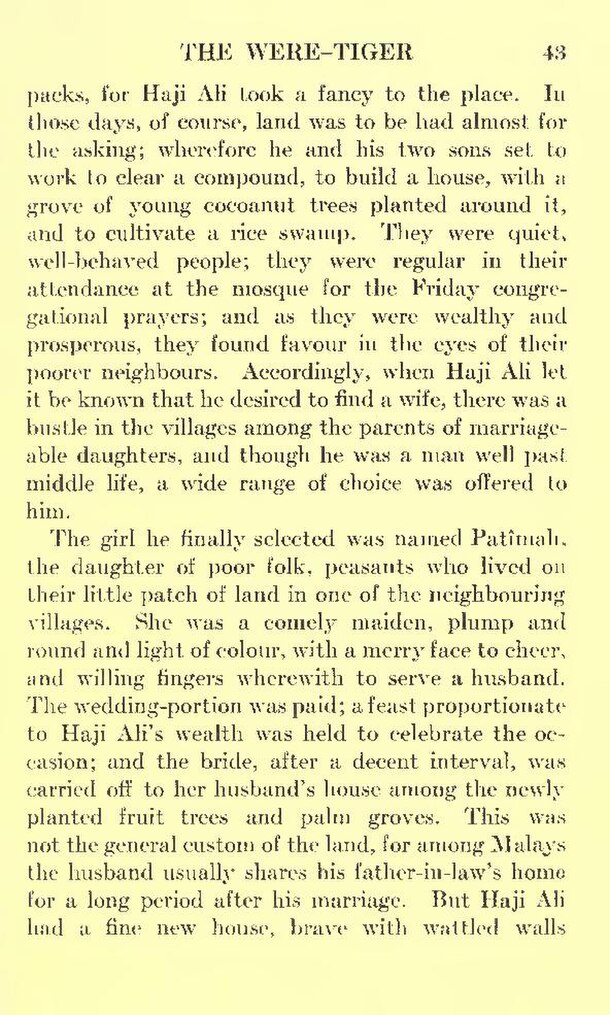packs, for Haji Ali took a fancy to the place. In those days, of course, land was to be had almost for the asking; wherefore he and his two sons set to work to clear a compound, to build a house, with a grove of young cocoanut trees planted around it, and to cultivate a rice swamp. They were quiet, well-behaved people; they were regular in their attendance at the mosque for the Friday congregational prayers; and as they were wealthy and prosperous, they found favour in the eyes of their poorer neighbours. Accordingly, when Haji Ali let it be known that he desired to find a wife, there was a bustle in the villages among the parents of marriageable daughters, and though he was a man well past middle life, a wide range of choice was offered to him.
The girl he finally selected was named Patîmah, the daughter of poor folk, peasants who lived on their little patch of land in one of the neighbouring villages. She was a comely maiden, plump and round and light of colour, with a merry face to cheer, and willing fingers wherewith to serve a husband. The wedding-portion was paid; a feast proportionate to Haji Ali's wealth was held to celebrate the occasion; and the bride, after a decent interval, was carried off to her husband's house among the newly planted fruit trees and palm groves. This was not the general custom of the land, for among Malays the husband usually shares his father-in-law's home for a long period after his marriage. But Haji Ali had a fine new house, brave with wattled walls
